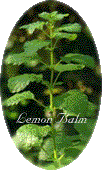
| DISCLAIMER OF LIABILITY The opinions expressed here are opinions only. No contributor is liable for the use or misuse of any advice or information provided. No recommendation has been evaluated by the Food and Drug Administration. Contributors are not qualified to diagnose, treat, cure, or prevent disease. All responsibility for the application of any information taken from these pages is wholly upon and at the discretion of the individual choosing to use it. Consultation with a holistic veterinarian is encouraged. |
|
HolisticBird Pet Bird Health Discussion Lists List Guidelines for HolisticBird list Articles & Discussions Pet Bird Diet Avian Nutrition Bird Behavior Healthy Bird Environment Help for Ailing Birds Healing Methods Resources
|
Behavior 
Is there any safe natural supplement that discourages hormonal behavior? My conure is on another hormone bender. He is almost constantly trying to climb on my hands and "rub", and trying to feed them too. He's not being aggressive, just obnoxious. I probably just have to let things run their course; he's been like this off and on for a couple months. I hope it ends sometime soon! Oh, he is 2 and sexed male.
I don't know of any natural supplement that will help.
There are some environmental things that can influence hormone
production. Here's a checklist:
1. Day length. If you're using full spectrum lights, you can decrease the
photo period to no more than eight hours a day. Conversely, you can set up
a sleeping cage in a small dark room, and put the bird to bed at 6:00 pm and
not wake him up until between 6:00 and 7:00 am. Hormone production usually
increases with increased day length.
2. Often, the more fat and protein the diet contains...the more "hormonal"
the bird will act. If I want to increase breeding activity in my birds, all
I have to do is feed more eggs and a higher fat diet. It might help to
decrease animal protein and seed, if he gets either of those.
3. Small, dark spaces. This relates back to #1 again, and it's probably
obvious. Nevertheless, it never fails to surprise me how many people have
little sleep huts for their birds, or provide them with boxes to play in,
and then wonder why the bird is so hormonal. I've come to the conclusion
that some of it has to do with visual stimulus. If either of my killer male
Pionus happen to get on the floor, they will immediately go to the spot in
the kitchen where there is a gap between the floor and the cabinets. Just
being in that smaller space, where it is only *slightly* darker, has an
impact. Tails fan out, head feathers ruffle, and the sexy whistling starts.
Pamela Clark